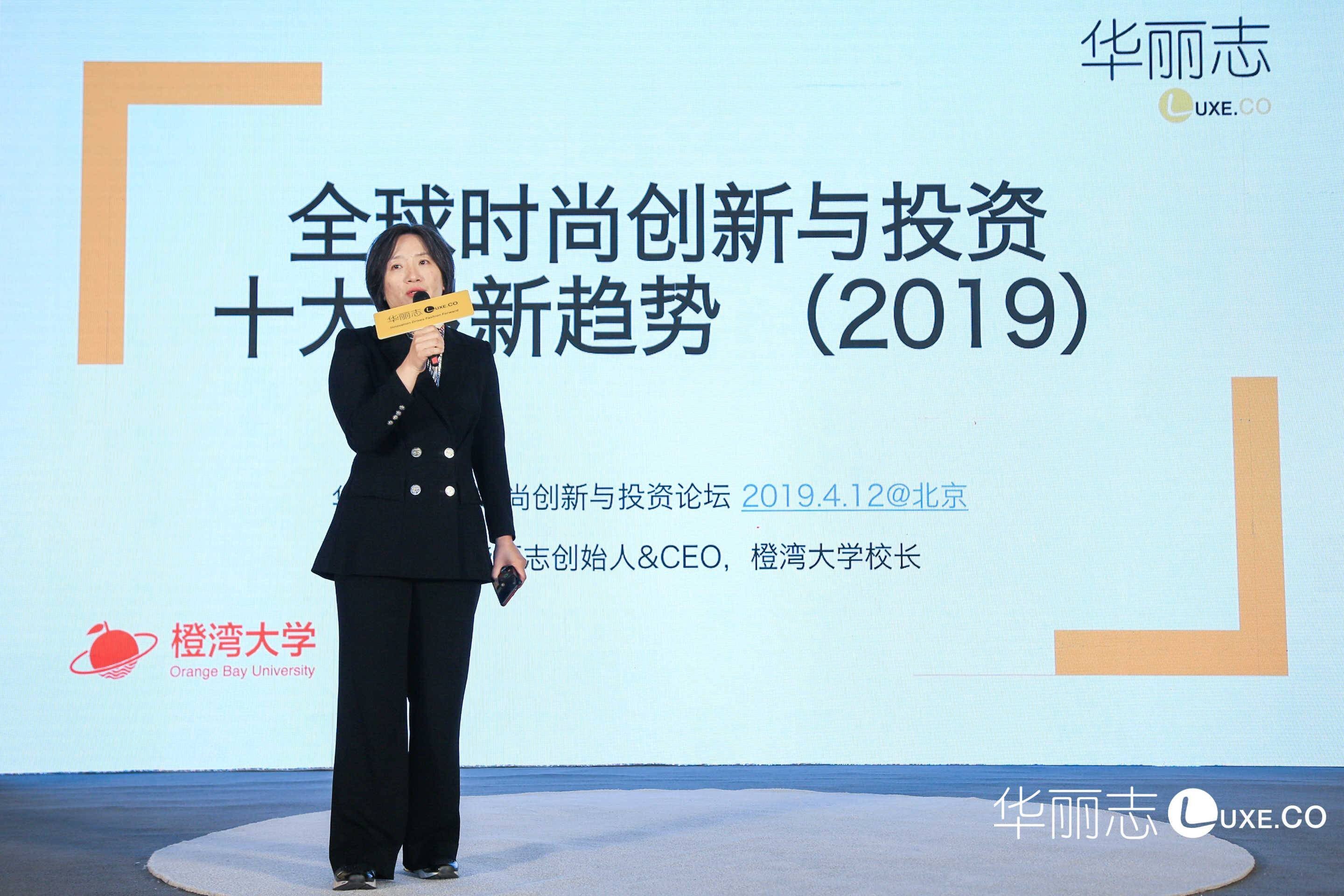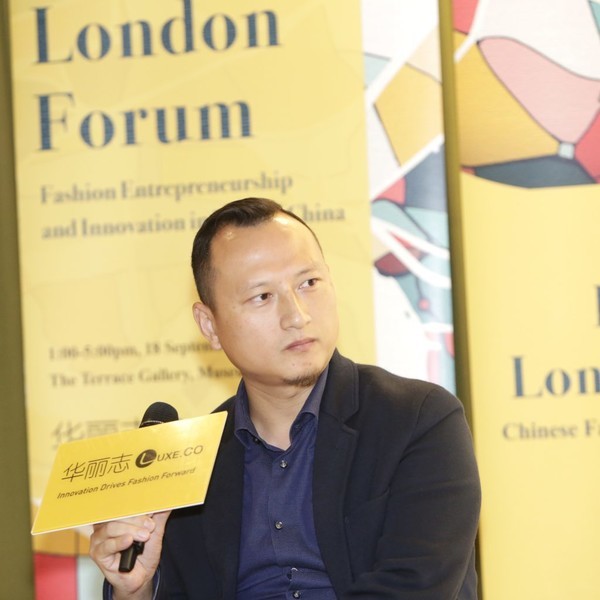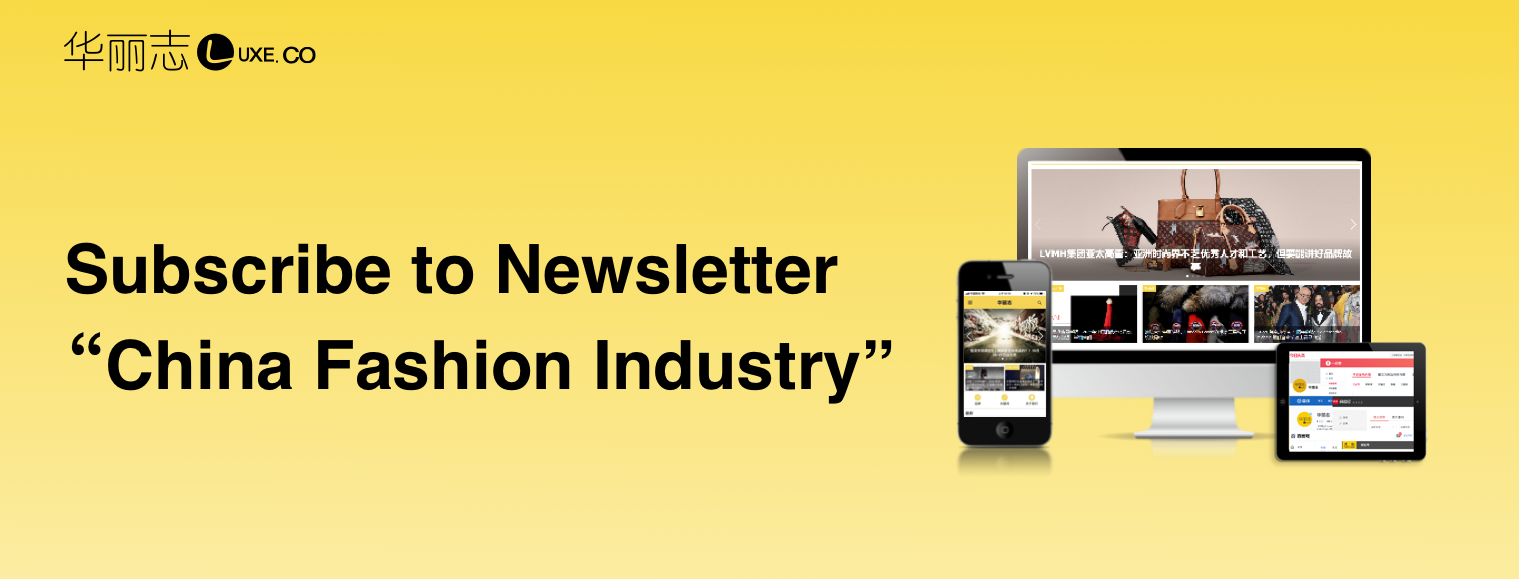Luxe.Co Annual Forum 2019 | Discovering the future of Chinese Fashion Industry
April 18,2019
Fashion, is a universal language, that resonates everywhere in the world. The fashion industry is one of the largest "sunrise industries" in China, generating unlimited opportunities for entrepreneurship, innovation and investment.
With a vision of linking global fashion innovation, Luxe.Co has launched a series of prominent fashion investment forums in Beijing, New York, London and Milan since 2015, connecting global innovators and decision makers.
тLuxe.Co Global Fashion Innovation and Investment Forum 2019т was successfully held on April 12, 2019 in Beijing. Front-line industry leaders, entrepreneurs, investors, managers and designers gathered together to discuss the challenges and future trends in fashion innovative entrepreneurship and investment in China and across the globe. Various real-life case studies were presented from multi-angles, outlining the development path of fashion brandsт creation, progress and evolution.
Take the Pulse of Global Fashion Innovation
China's fashion industry has remained robust. China has not only become the world's largest fashion consumption market, but has also generated a huge momentum across the entire industry chain from creativity to production, and from capital to marketing in the global fashion industry. Meanwhile, the development of technology, youth consumer groups, and consumersт mindset have driven the growth and upgrades of the fashion industry from multiple dimensions.
Analyzing the latest development of fashion innovation and investment with a global vision, тLuxe.Co Global Fashion Innovation and Investment Forumт has been deeply engaged in analyzing and documenting the dramatic changes in Chinaтs fashion industry since 2015.
тLuxe.Co remains committed to linking global fashion innovation, with a focus on luxury, fashion and lifestyle. The Luxe.Co platform has brought together the best fashion leaders, entrepreneurs and investors of this era, and accumulated a large library of business data and brand case studies. The annual forum is a celebration of the fashion industry and Luxe.Coтs endeavors and achievements,т said Alicia Yu (фНч) , founder of Luxe.Co and president of Orange Bay University.

At the opening speech, Alicia Yu presented тThe Top Ten Trends in Global Fashion Innovation and Investment in 2019т:
- Top luxury brands remain strong; niche brands continue expanding their scope
- New multi-brand fashion groups are evolving quickly
- тUnicornsт are emerging, while DTC (direct-to-consumer) internet brands are growing
- Female consciousness is awakening and male fashion consumption is rising; fast becoming the two important driving forces in the fashion industry
- M&A in beauty care intensifies; тgreenт and тsocial mediaт become two keywords
- тCool technologyт continues expanding in тfashionт
- Classic brands face challenges in upgrading brand recognition and management systems
- High-end brands increasingly focus on supply chain building and integration
- Fashion and culture interconnect even closer and become more тsensitiveт
- The purchasing power of Chinese luxury consumers continues to rise
At the roundtable panel discussion, industry experts held in-depth discussion on topics, such as "How does technology empower fashion?", "New generation consumer insights", "How do outdoor sports grow from niche to popular?", "Fashion investment practices and insights" and "Opportunities and challenges in China's independent designer brands".

Above: Roundtable panel discussion on "How does technology empower fashion"
From left to right, Xuan Liu (цГшНЉ, CIO of SECOOхЏКхК), Xiaoqu Luo (чНхАцИ , Co-Founder and CEO of Cardinal OperationsццАчЇц), Shunchang Qiao (фЙщЁКц, Co-President of Coastal Industry Fund & Secretary General of Chinese Angel Association), Alicia Yu, Xi Chen (щцІ, Founder of ChampzeeхшЁЃ), and Yan Chen (щфИЅ, Co-GM of ZUCZUG)

Above: Roundtable panel discussion on "New generation consumer insights"
From left to right, Elisa Wang (ччМ, Fashion Director of Luxe.Co), Yilin Zhuang (хКфИчГ, Global Brand Director of Unilever), Qian Zhu (цБфЙО, CFO of JNBY GrouцБххИшЁЃ), Qiao Ding (фИцЁЅ, Co-Founder of YouyuцщБМ), and Cong Xu (хОшЊ, Managing Director of Trends BrandцЖхАфЙщ)

Above: Roundtable panel discussion on "How do outdoor sports grow from niche to popular"
From left to right, Alicia Yu, Tian Xia (хЄхЄЉ, Executive Director of FountainVest), Chuanlong Tang (хфМ щО, Founding Partner of Jintan Capital), Yan Lou (цЅМхНІ, President of PADI Greater China), and Gang Duan (Vice Chairman and CEO of China Open)

Above: Roundtable panel discussion on "Fashion investment practices and insights"
From left to right, Alicia Yu, Xin Chang (хИИцЌЃ, Founding Partner of Borchid Capital), Zhenwei Guo (щцЏч, Vice President of Sequoia Capital China), Guoxing Wei (щхНх Д, Partner of Tiantu Capital)

Above: Roundtable panel discussion on "Opportunities and challenges in Chinaтs independent designer brands "
From left to right, Elisa Wang, Shan Li (цхЇ, Founder of the SHINE LI), Dongxing Li (цфИх Д, Founder of Ximon Lee), Xing Chen (щх Д, Founder & CEO of BIFUхНМфМ), and Yiwei Xu (хОфИхЋ, Founder of ALL COMES FROM NOTHING)
What does it take to create a new fashion brand? Practices and real-life case studies provide the answer. Luxe.Co forum 2019 held several тFounderтs Talkт sections particularly. Founders presented on stage their path of brand creation and development, including Xiaolu Liu (ххАч, Founder & CEO of NEIWAIх хЄ), Guang Feng (хЏх , Founder of Т MUKZINхЏц) , Ren Jiujin (фККфЙцЄ, Founder & CEO of Particle Fever), Xiaohong Cui (хДцчКЂ, Founder of Marie DalgarчфИНщЛфНГ), Wenfei Ma (щЉЌцщЃ, Founder & CEO of Pidan).

Above: Xiaolu Liu, Founder & CEO of NEIWAI

Above: Guang Feng, Founder of MUKZIN

Above: Ren Jiujin, Founder & CEO of Particle Fever

Above: Xiaohong Cui, Founder of Marie Dalgar

Above: Wenfei Ma, Founder & CEO of Pidan
As the fashion industry develops constantly, Chinese classic fashion brands and industrial groups have also evolved. At the forum, Alicia Yu hosted two in-depth dialogues with Hongchao Chen (щчКЂц, CEO of PeacebirdхЄЊхЙГщИ) and Shaoming Zhou (хЈхАц, President of SeptwolvesфИхЙчМ) . They discussed on topics of тRevitalization and Innovation of Chinese Fashion Brandsт and тDevelopment Path of Chinese Fashion Industrial Groupsт, respectively.

Above: Alicia Yu and Hongchao Chen (CEO of Peacebird)

Above: Alicia Yu and Shaoming Zhou (President of Septwolves)
Multi-brand Fashion Groups: Development Accelerating
"Over the past year, Luxo.Co Luxury Index has fallen by 6.4 percent due to exchange rates and the decline of Chinese overseas luxury consumption. However, top brands performed very well," Alicia Yu said, "Top luxury brands remain strong while niche and specialty brands are expanding their scope.т
Among the top six luxury stocks that had the highest price increase in 2018, there were not only classic luxury brands, such as HermУЈs, LVMH and Kering Group, but also up-and-coming brands specializing in sub-categories, such as Canada Goose, Brunello Cucinelli and Moncler. "In terms of the increase in their sales, net profits and market capitalization, the luxury sector continues to generate a strong momentum. Global high-end consumers continue their pursuit for luxury products,т Alicia Yu summarized.
From China to the U.S., the business evolution of the new generation multi-brand fashion groups is accelerating. Fosun Group currently owns Lanvin, Wolford, St John Knits and many other well-known international brands. Through M&A in recent years, Shandong Ruyi Group has acquired over 30 luxury and fashion brands in France, U.K., Japan, Switzerland and so on.
Behind the competition among fashion brands, supply chain integration and innovation are becoming more and more important. From Gucci to Louis Vuitton, from Swarovski to Uniqlo, from Italian luxury cashmere brand to Korean beauty care factory, many brands have continued focusing on supply chain management over the past year. Global fashion consumers, especially Chinese consumers, are increasingly demanding of product qualities.
Brands: The best focus of the fashion industry
In recent years, more and more emerging fashion brands have discovered their niche market through in-depth consumer insights of segmented customer needs.
For example, New Zealand startup brand Allbirds developed "machine-washableт wool sneakers. New York-based mattress startup company Casper produced portable mattresses and American lingerie brand, ThirdLove launched bras in 78 sizes in order to fit women with different measurements. The brand has gained massive popularity among consumers and investors.
"Over the past year, we have found that many of the emerging global fashion and lifestyle brands that Luxe.Co has focused on since five or six years ago, have grown into тunicorns'," Alicia Yu said, "These brands are reaching out directly to consumers through the internet. Leveraging on brand recognition and digital communication, they have strengthened their product offerings, shortened supply chains and expanded from online to omni-channel distribution.т
In addition, female consciousness has awakened while male fashion is rising. Fashion boundary has broadened with the assistance of culture and technology. Environmental ethics are now a focus for fashion brands. These become the growing forces of emerging brands, and drive the transformation and opportunities for traditional brands.
In the fashion industry in both China and around the world, classic brands have encountered dual challenges in brand recognition and management systems. тOf course, it is also a driving force for classic brandsт innovation", said Alicia Yu.
At the forum, Luxe.Co also released the тLuxe.Co Brand Board: Top 500 Overseas Brandsт. From multiple dimensions, including country, category, innovation and financing factors, Luxe.Co selected 500 of the most representative luxury, fashion and lifestyle brands, showcasing the latest real-life global fashion ecology.
"When it comes to fashion, many people are clueless and think it's an 'ocean'. I think the best focus for fashion is brands. Behind every brand, there is a unique and differentiated story, an outstanding founder and a continuously innovative management team.т Alicia Yu analyzed, " This board not only includes brands from the U.S., Italy, France and other 'leadingт fashion countries, but also covers brands from less familiar fashion countries, such as Uruguay, Peru and Iceland. Fashion has no borders. Chinese fashion brands are competing with global brands. Only by understanding them in-depth, Chinese brands can have a clearer vision of the competition, in order to better serve local customers and expand in the global market confidently.

| Photos from Luxe.Co
| Chinese Reporter: Ying Sun
Marketing and Business Cooperation, please email toТ contact@hualizhi.com












Comments